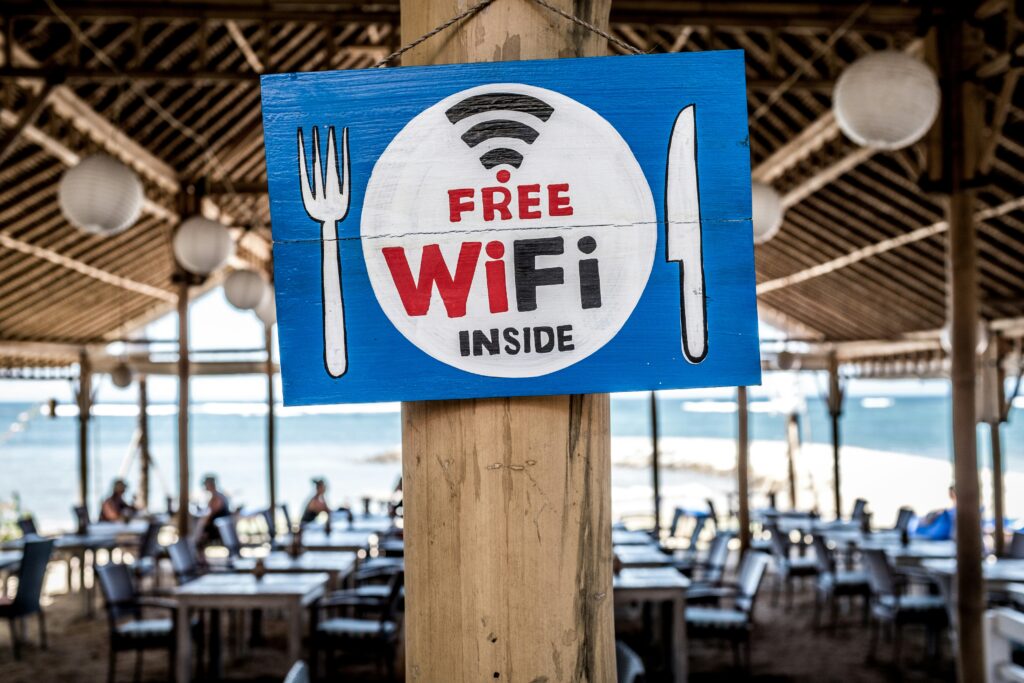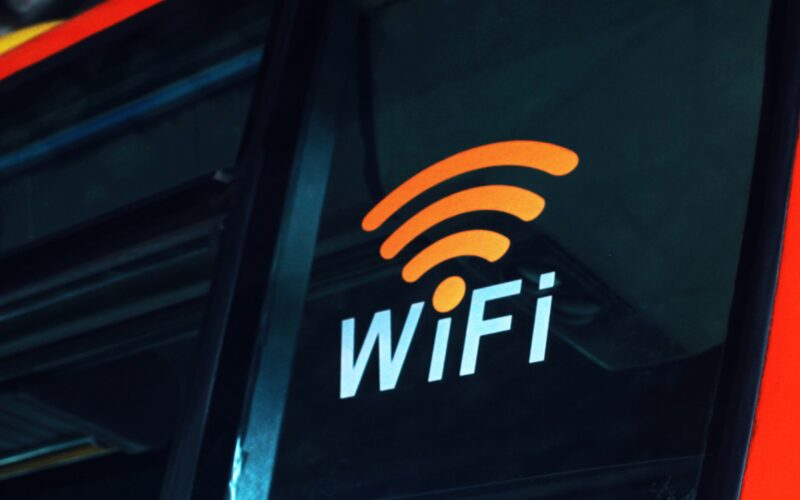Public Wi-Fi is a term referring to public access points that allow users to connect their devices to the internet and which do not require any kind of network connection. These networks are generally made available by businesses, governments, or organizations that provide customers, visitors, and the general public with access to the Internet.
They are available in a range of locations like eateries, rail terminals, airports, hotels, museums, libraries, government agencies, supermarkets, shopping centers, recreational spaces, and parks.
Public Wi-Fi is intended to be accessible to everyone in the range of the network signal. Unlike home or business Wi-Fi networks, which frequently require a password to gain access, they are typically open and unsecured, allowing you to connect without authentication.
Is it safe to Use Public Wi-Fi?
It’s useful when you’re out and about, in need of a fast internet connection but in spite of their convenience. However, public WiFI networks can pose a threat to your online safety. Some factors you should take into account include the following:
Unencrypted connections: In contrast to home networks that have a password, it is available to everyone. It is often unencrypted and puts at risk sensitive information such as passwords, emails, and personal information.
Network Security: Public Wi-Fi networks may lack proper security measures, making them vulnerable to viruses and harmful software that may cause havoc to your device.
Fake Networks: Cybercriminals can create a false network with names like those of real networks to trick you into connecting. These fake networks are intended to steal information and data from unsuspecting users.

Data Interception: Your data may be intercepted by others on a public Wi-Fi network. This does not only include hackers but also others who may be connected to the network and could compromise your personal information.
Limited Network Control: These networks provide you with little to no control over security settings, unlike your home network. It is challenging to guarantee the security of your connection and data because of this lack of control.
Risk of Privacy Violations: You may mistakenly expose sensitive information to third parties when you connect to a network in public. Your personal information may be collected or used in a way that is harmful to your privacy.
How to Connect to Public Wi-Fi Safely
Despite these concerns, you can take the following actions to improve your safety when connected to public Wi-Fi networks:
Verify Network Authenticity: In connecting to public Wi-Fi, it is important to confirm the network is authentic. Check with venue staff to verify the network name. Avoid connecting to networks without passwords, as they could be set up by hackers to deceive users. Being cautious can help safeguard your online security and privacy.
Avoid accessing sensitive information: Public Wi-Fi networks have lesser security measures, which makes them more vulnerable to cybercriminals. Therefore, when you are connected to public WiFI, it is best to avoid accessing sensitive information such as online banking, email accounts, and login credentials.
Avoid clicking on suspicious links: Hackers often use phishing techniques to trick users into clicking on malicious links, text messages, or websites which lead them to fake websites or download malware onto their devices.
Forget Saved Networks: Once you’ve finished using public Wi-Fi, it’s important to remove it from the list of saved networks on your device.
Use Your Mobile Data: Consider using your mobile data connection instead of public Wi-Fi for added security, although it may incur additional costs. It offers increased security when browsing the internet.
Disable Location Services: For improved privacy and security while using public Wi-Fi, turn off location services on your device which makes it difficult to access your exact location. While this does not deal specifically with the security risks, it is necessary to combine them with other safety measures in order to protect your data.
Understanding and handling the risks related to protection of your privacy and security are important when you use public Wifi at convenient times. The use of these steps can help reduce these risks and increase your safety when connecting to a public Wifi network.












